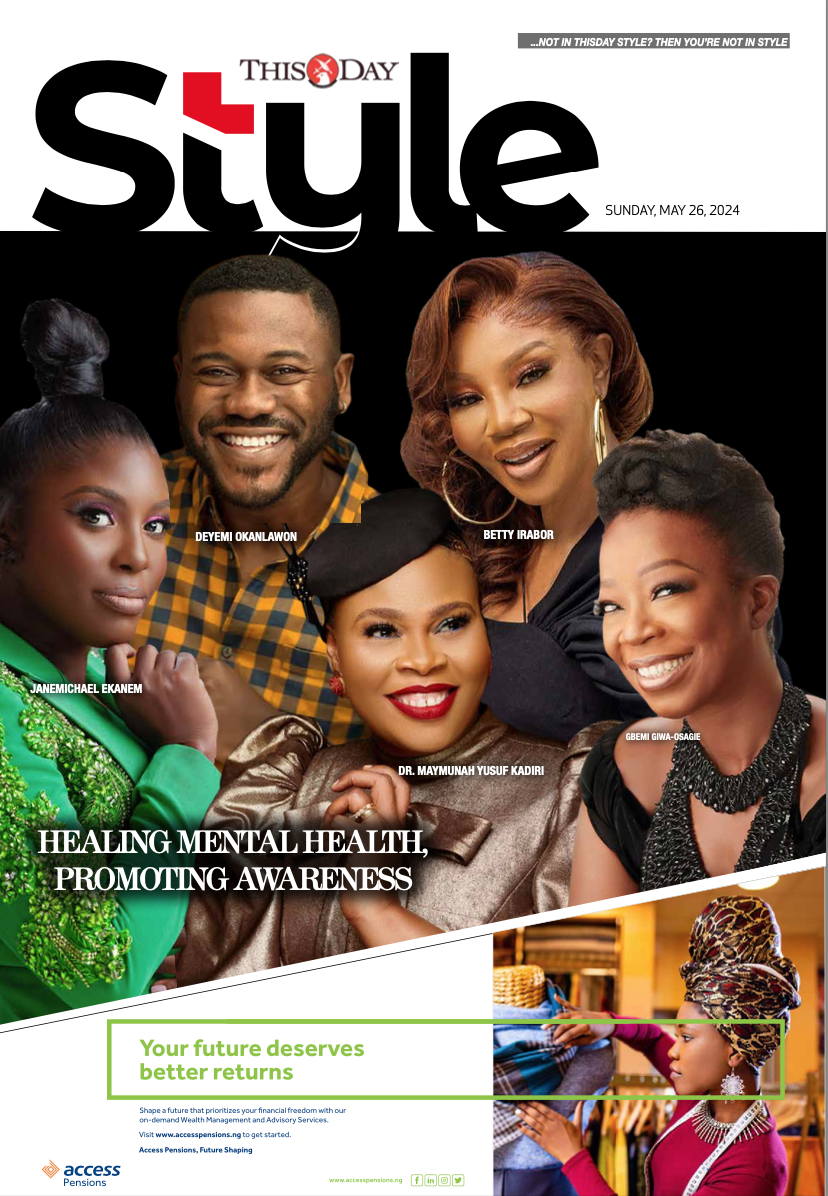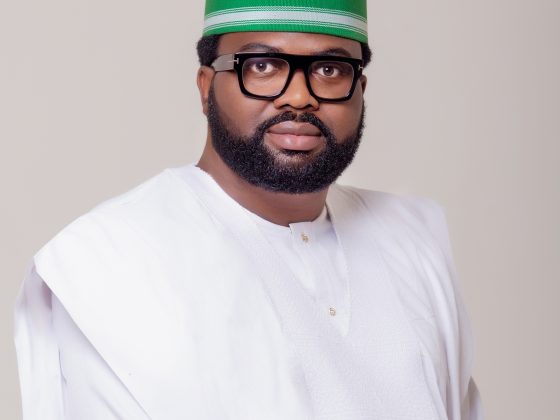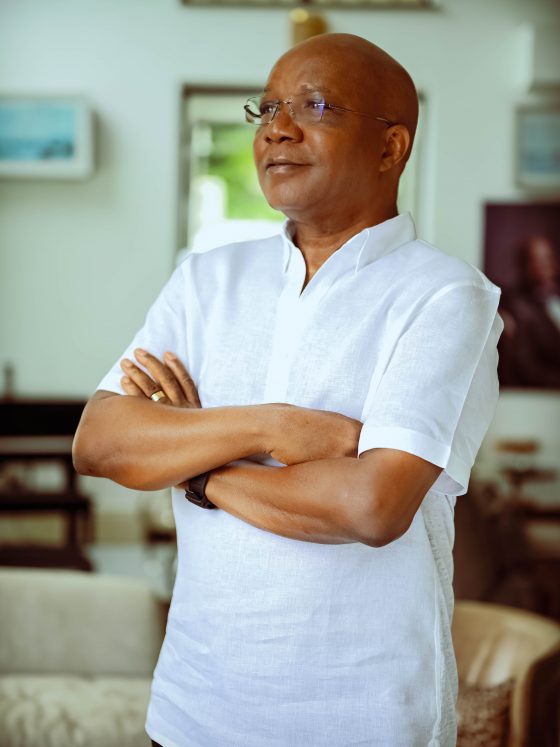Mental health illness awareness programmes and campaigns appear to still be an unpopular topic in Nigeria when we compare it to other awareness campaigns carried out in the country. It is crucial to recognise that mental and physical health should be accorded equal attention, significance, and resources, just like any other health campaign. By establishing a robust framework for mental health initiatives, Nigeria can truly address the existing gaps, create transformative campaigns, and embark on a journey towards a more prosperous and inclusive society. Prioritising mental health awareness will not only contribute to fostering a more empathetic and supportive environment but will also enable individuals to lead fulfilling lives while contributing to the broader development and growth of the nation.
In Nigeria and many countries around the world, the month of May is recognised as Mental Health Awareness Month, and the aim is to recognise the importance of and promote awareness of the mental health issues that people suffer from. It is indeed a right move for any government to recognise the need to educate the members of its nation, particularly the young, who are the future leaders, to eradicate patterns of nonchalant disregard towards mental health struggles. This invaluable moment in time unequivocally presents an unparalleled opportunity for nations around the world to highlight and showcase stigmatised mental health conditions. By fostering open analysis and thoughtful discussions surrounding these conditions, it becomes possible to effectively educate and empower those who have long been neglected and underserved by society. The impact and potential for positive change during this month of mental health awareness are immeasurable.
Mental health illness is widespread in Nigeria. The health sector has it on record that, in the course of a lifetime, one in four Nigerians is most certainly to suffer from mental health issues. Furthermore, investigation has exposed the link between mental health illnesses and social factors, which include financial situation, spiritual state, and medical core dysfunctions.
Mental health issues cannot be properly discussed without mentioning the stigma that surrounds mental illness. The stigma of mental illness is a recognised stumbling block of society, deeply embedded in cultural, social, and religious beliefs that isolate the ill from the general populace, support networks, and potential partners. Thus, it is imperative that society take active steps to challenge and dismantle the stigma surrounding mental illness, fostering an inclusive society where individuals with mental health conditions are embraced, supported, and empowered to live full and meaningful lives. This week we speak to mental health practioners, patient and other stakeholders who bare it all about mental health in this mental health month of May.
GBEMI GIWA OSAGIE – PSYCHOLOGIST
Gbemi Giwa-Osagie is a dedicated and compassionate psychologist with a proven track record of providing expert psychological assessment and interventions to children, families, and individuals facing emotional challenges.
With a degree in psychology (BA) from Mount Saint Vincent University Halifax Nova Scotia, Canada, and a Masters in counselling psychology from Bowle State University Maryland, USA, Gbemi has a strong focus on supporting women and victims of domestic abuse, offering empathetic counselling and advocacy to empower individuals through difficult life transitions.
Her passion for women’s mental health was sparked during her internship at Pregnancy Aid Services in America, and then she moved back home and continued the good work at the Lagos State Family Court, where she made an impactful difference with her dedication and passion to help families navigate through difficult issues and times. She now works at Grey Insights creating awareness and responding to emotional and mental health crisis suffered by individuals in the workplace.
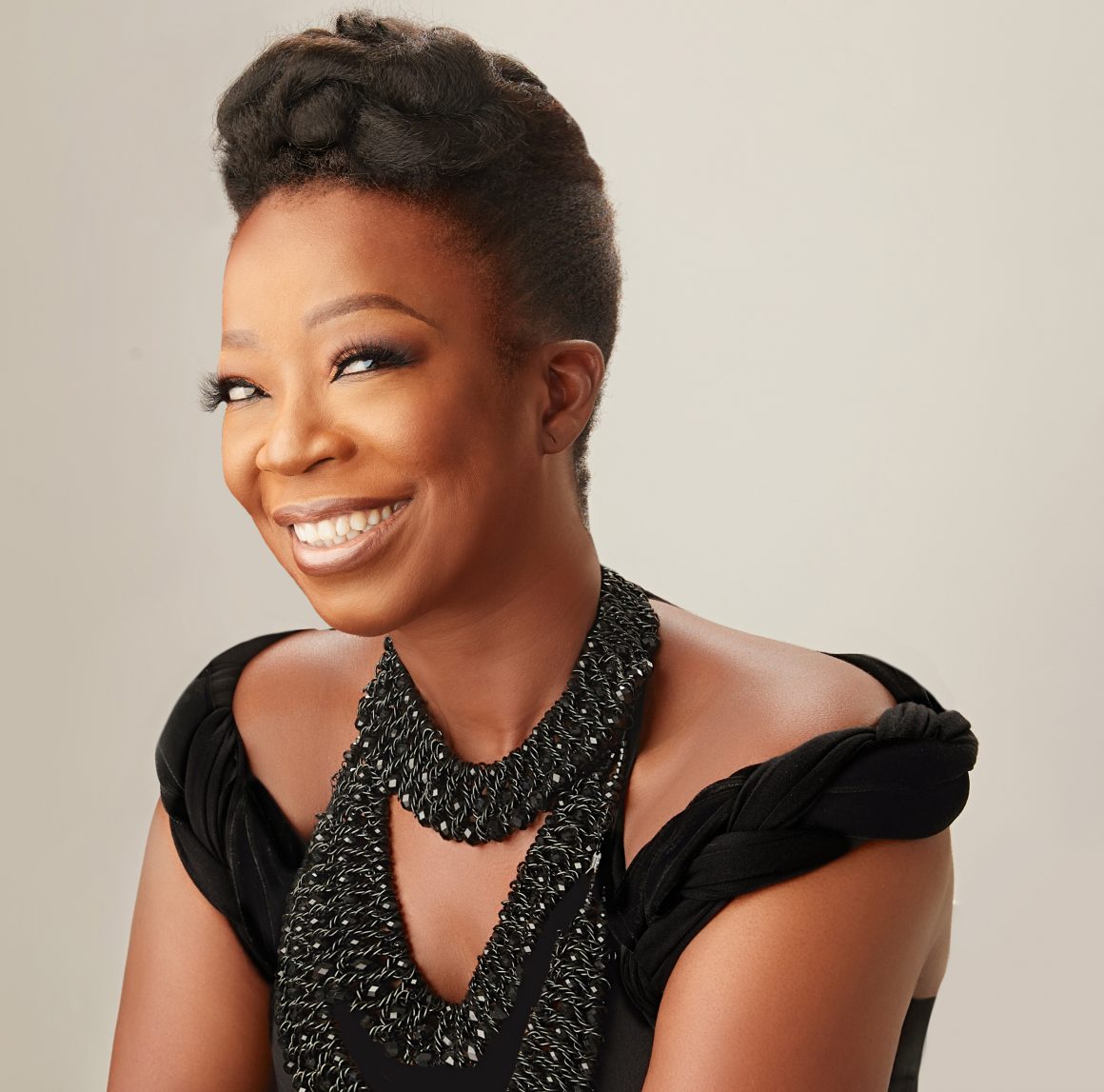
How would you define mental health?
When we talk about mental health, we are referring to the mental well-being of an individual with regards to their emotional, psychological, social, physical, and spiritual health. Similar to physical health, but rather related to cerebral or intellectual health.
An individual’s mental health influences how that individual thinks, feels, and behaves. It affects our relationships, our work, and our daily lives, and this, in turn, can affect our physical well-being.
It is very important that every individual take adequate steps to maintain good and balanced mental health.
What does the month of May, mental awareness month, mean to you?
I, for one, am excited that a whole month has now been dedicated to raising awareness of the importance of mental health. Since the COVID pandemic, mental health issues have been thrust into the spotlight. People have now come to better understand the issues surrounding mental health.
Every single person has some mental health issue or another, whether it is just worrying too much or something much deeper. The awareness created in May mental health month has encouraged more people to talk more openly about and pay more attention to their mental health. This is helping a great deal to reduce the stigmatisation that surrounds people with mental health issues.
Many people are not aware that mental health is just as easily treatable as other physical health issues, and having a Mental Health Month is encouraging more individuals to now seek help when they find themselves struggling with their mental well-being. Creating this awareness is also helping to reduce the stigma put on people seeking medical help. The goal to educate more people about their mental health well-being is slowly being achieved, but we still need to create even more awareness around this.
At your practice, what are you doing to celebrate this month and bring awareness to mental health in Nigeria?
We have had a road walk to create awareness about mental health. We have also collaborated with corporate organisations and other bodies and institutions to educate their employees and colleagues on the topic of their mental health. And we are also utilising social media channels to further raise awareness and educate the general public. Finally, we are also organising an upcoming event to create even more awareness about mental health.
Who is most susceptible to mental health illness?
Mental health illness can affect anyone, regardless of age, race, gender, or background. Many factors have been identified as contributing to mental health illness. Some of these factors include chronic illness, low income, particularly in poor communities, bullying at work or school, childhood trauma, and genetics, to name a few.
All these can affect individuals’ mental health. This list of causes is by no means exhaustive, and we always say to people that if you or anyone you know is struggling with mental health issues, please reach out for professional help and support.
So, what are the next steps to take once a person has identified those symptoms? When does the person need to seek help?
You are correct in saying Nigerians don’t take their mental health seriously. This might be due to our cultural beliefs, social and cultural stigmatisation, and the feeling that “what happens in a family should stay within the family.” The vast majority of Nigerians associate mental health with mental illness. The image that pops into the minds of most Nigerians when you mention mental health is that of an individual walking on the road naked, talking to themselves. It is important to remember that mental health is just as important as physical health. Asking for help is a sign of strength, not weakness.
Signs of mental health vary. Some of the signs we look out for include changes in an individual’s mood, such as sadness, anxiety, mood swings, withdrawal from social interactions, secluding oneself from friends and families, changes in daily routines, self-harming activities, sleep disturbances, and expressing hopelessness. It is important to note that these signs don’t necessarily mean an individual has mental health issues, but they can be indicators to start talking to the person. Like I mentioned earlier, it is important to seek help if you feel you or someone you love needs help.
I am glad to say that more and more mental health facilities are being established in Nigeria. We now have both private and public facilities catering to mental health wellness.
Nigerians need to work together to break down the stigma surrounding mental health. I am happy to see that more insurance companies now support mental health treatment as part of their health insurance packages.
Anyone struggling should please reach out to a professional for help.
DR. MAYMUNAH YUSUF KADIRI – PSYCHIATRIST
Dr. Maymunah Yusuf Kadiri is the Medical Director and Psychiatrist-in-Chief at Pinnacle Medical Services (PMS), a leading psychology and mental health facility in Nigeria that is prominent in the application of innovative clinical approaches in the management of psychological, emotional, and behavioural-related disorders. Dr. Kadiri is also the founder of Pinnacle Medicals SPEAKOUT Initiative, which is geared towards creating mental health literacy in Africa. As a forerunner in the practice of mental health, neurofeedback, biofeedback therapy, and other novel therapy techniques in Nigeria, she is one of the most sought-after psychiatrists and psychotherapists in Nigeria and beyond who continues to lend their hand and voice when it comes to mental health.
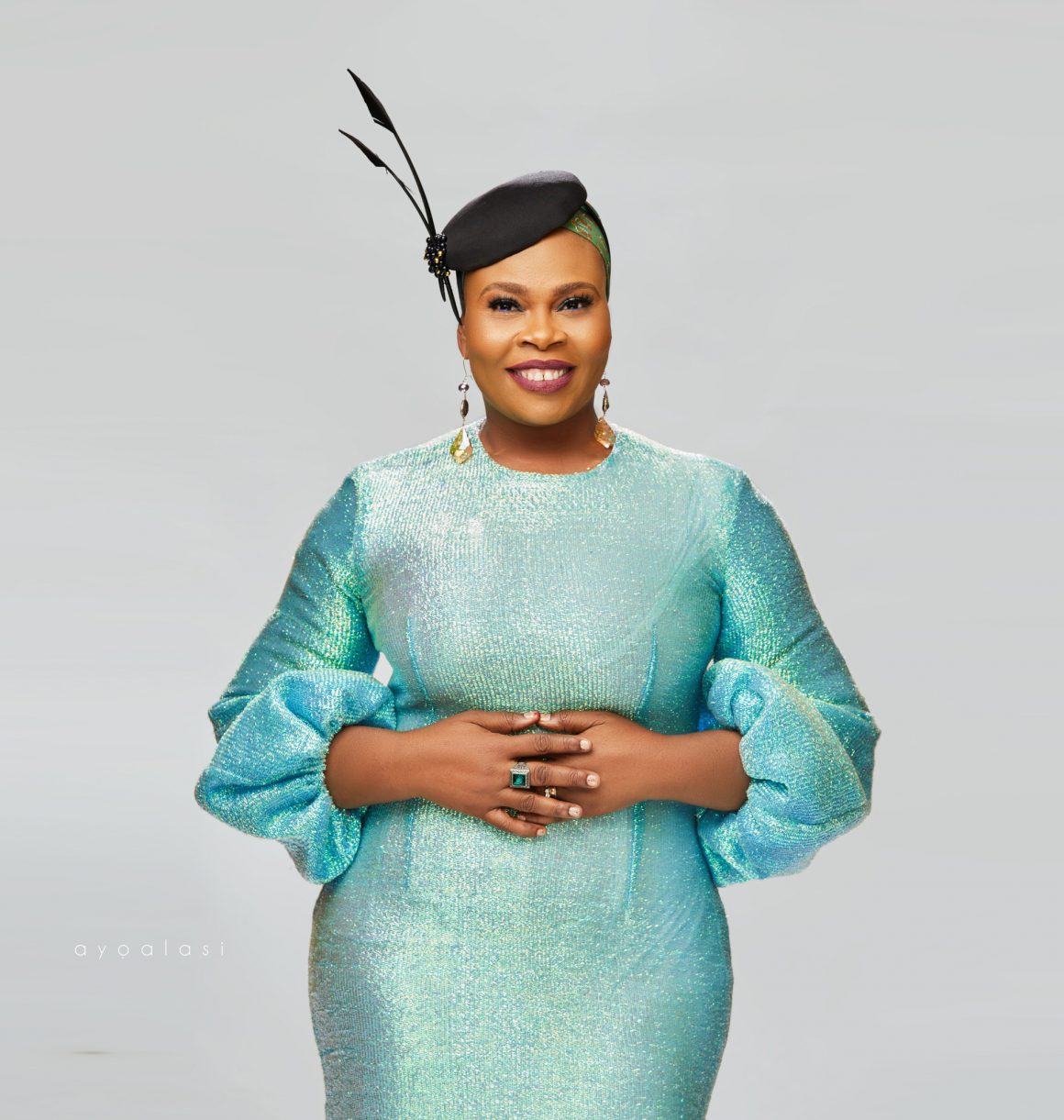
How would you define mental health?
I will define Mental health as a state of well-being in which an individual realises his or her own abilities, can cope with the normal stresses of life, can work productively and fruitfully, and is able to make a contribution to his or her community. It includes our emotional, psychological, and social well-being. Mental health affects how we think, feel, and act. It also helps determine how we handle stress, relate to others, and make healthy choices. It is important at every stage of life, from childhood and adolescence through adulthood. Mental health is more than just the absence of mental disorders or disabilities.
What does the month of May Mental Awareness Month, mean to you personally?
Personally, as a mental health physician, advocate, and coach, the month of May is of great importance because my mantra is normalising mental health conversations by building a culture of compassion. So, this month, my team and I are involved in several projects to intensify awareness about mental health.
Likewise, it is a time dedicated to raising awareness about mental health issues, reducing the stigma associated with mental illness, and promoting mental well-being. During this month, various organisations, advocates, and communities engage in activities to educate the public, support those with mental health conditions, and advocate for policies that improve mental health care. It aims to foster a better understanding of mental health, encourage open conversations, and provide resources for those in need.
At Pinnacle Medical Services, what are you doing to bring awareness to mental illness in Nigeria?
At Pinnacle Medical Services, which is a mental health service delivery wellness centre, we are committed to raising awareness about mental illness and breaking the stigma associated with mental health issues in Nigeria. We have several initiatives and activities to celebrate and bring awareness to mental illness in Nigeria. We have community outreach programmes aimed at educating the public about mental health. These programmes include seminars, workshops, and free mental health check-up camps in various communities. Our telemedicine platform, HOWBODI, which has a mobile counselling booth, is taken to hard-to-reach communities so they can assess mental health care. The goal is to demystify mental health conditions and encourage people to seek help without fear of stigma. We collaborate with educational institutions to integrate mental health education into curriculums. Through social media, radio, television, and print media campaigns, we disseminate information about mental health. Our campaigns feature testimonials from individuals who have successfully managed their mental health conditions, thereby humanising the issue and reducing stigma. Each year, we actively convene the mental health conference, TMHC. We host events such as mental health fairs and panel discussions with mental health experts, policymakers, and advocates. These events are designed to foster a deeper understanding of mental health issues, promote the importance of mental wellness, and more. Our holistic approach ensures that we address the mental health ecosystem comprehensively, providing end-to-end care and facilitating safe spaces for individuals to achieve healthier, wealthier, and happier lives.
Who would you say is most susceptible to mental health illness?
Mental health illnesses can affect anyone, but certain people may be more susceptible due to a variety of factors. Which include individuals with a family history of mental illness, people experiencing chronic stress from work, relationships, or financial difficulties, individuals with traumatic experiences, those with chronic medical conditions, individuals with substance abuse issues, children and adolescents particularly vulnerable due to developmental changes, peer pressure, and academic stress, and elderly individuals facing isolation, physical health decline, and grief, all of which can contribute to mental health issues. Also, members of marginalised communities experiencing discrimination, social inequality, or minority stress, as well as individuals living in poverty, instability, and lack of access to healthcare, can significantly increase the risk of mental health problems. Understanding these risk factors can help identify those who may need more support and resources to maintain their mental well-being.
We know that not every case of mental health illness needs professional intervention, so how can we support ourselves or others if we notice signs of mental illness?
Absolutely, not every case of mental health condition requires professional intervention, but support from friends, family, and the community can be incredibly valuable. Be understanding and non-judgmental. Approach the situation with empathy and without judgement. Let the person know that you care about them and are there to support them. Listen actively, encourage open communication, and actively listen to the person’s thoughts and feelings. Sometimes, simply having someone to talk to can provide relief. Finally, educate yourself and learn more about mental health conditions and the specific symptoms the person may be experiencing. Understanding their struggles can help you provide better support.
You will be shocked to know that a lot of people don’t know where to seek help. Can you tell us where to go to seek help?
This isn’t shocking to me as a practitioner because of the stigma and discrimination attached to mental health and people living with mental illnesses. The truth is, it’s important to know where to seek help when dealing with mental health concerns. Start by talking to your primary care doctor, like the family physician; they can assess your symptoms, provide guidance, and refer you to a mental health specialist if needed. You can also speak to a psychiatrist specialising in the diagnosis, treatment, and management of mental health disorders. They can prescribe medication and provide therapy. Also, a psychologist trained in psychotherapy and psychological assessment can help, but they cannot prescribe medication but can provide therapy and counselling.
A licensed mental health therapist or counsellor can also provide therapy and counselling services. These groups of people can be accessed at different facilities, like psychiatric hospitals, mental health centres that offer a range of mental health services, support groups, counselling centres, and more. Just remember that it’s okay to reach out for help, and you don’t have to go through mental health challenges alone. If you’re unsure where to start, consider talking to a trusted friend or family member who can offer support and guidance.
What is your advice to those who have mental health illness but are too embarrassed to seek help?
For those who are too embarrassed to seek help for their mental health illness, here is some gentle advice: You’re not alone. Remember that mental health issues are common and affect people from all walks of life. You are not alone in your struggles, and many others have faced similar challenges. It’s okay to seek help because Seeking help for mental health concerns is a sign of strength, not weakness. It takes courage to reach out for support, and doing so is an important step towards healing and recovery. While seeking professional help is important, take note that there are many self-care practices that can support your mental health, such as exercise, mindfulness, relaxation techniques, and creative expression.
Deyemi Okanlawon
Deyemi Okanlawon is one of the leading actors in the Nigerian film industry, with commendable appearances in blockbuster movies. The actor, who also has a degree in chemical engineering from the University of Lagos, is known for his versatility and ability to deliver stellar performances in the different roles he takes on in movies. Deyemi dealt with mental health illness for about 3 years and overcame it, but the actor continues to advocate for the importance of men speaking up about their mental health.

When did you first notice that your mental health was an issue and what kind of experiences and symptoms were you having?
I first began to notice that I might be having mental health issues sometime in 2018. I was increasingly experiencing constant feelings of anxiety, centred mostly around my career. I wasn’t earning enough, nor was I getting opportunities to work on high-level production, and this left me constantly worried about my ability to sustain a successful career in entertainment. I feared that I would be unable to meet the needs of my young but growing family and other loved ones who depend on me financially. The pressures from work and personal life seemed insurmountable, and I found it difficult to sleep. I lost interest in activities that I once enjoyed, especially acting.
Up until the pandemic, mental health illness wasn’t openly talked about in Nigeria. What did you do when you realised your mental well-being was deteriorating? Did you have anyone to openly confide in back then?
Initially, I most certainly kept my thoughts and feelings to myself. I did not want to burden anyone with my issues, least of all my wife, who was already doing so much raising our kids alongside her high-pressure career while I was mostly out working. I remember once trying to speak to one or two elderly family members but came out of those conversations feeling even more disenfranchised. By 2019, I started noticing that I had been using some pretty harmful coping mechanisms to distract me from my thoughts, and that was when I finally realised how bad things had gotten. I eventually quit acting and went back to an office job, thinking this would help, but while I did feel a level of peace, the anxiety was still there, and I couldn’t see a way out.
At your lowest, how did you feel? What did you do? And how did you get the help you needed?
In 2020, Jimmy Odukoya and I started spending a considerable amount of time together, and I’m sure he has no idea how he played a significant role in my recovery. Other people I spent time with are Lanre Olusola and Yetunde Bankole Bernard, who I believe have a unique view of handling men-related issues. Also, conversions with some of my closest mentors, RMD, Mo Abudu, Bolanle Austin Peters, and Alibaba, who have faced similar challenges, did a lot in helping me see that the issues I was anxious about were not perculiar to me, and, as with them, there would be light at the end of my dark tunnel. With the pandemic, I was also able to find time to pray and meditate, while I also went back to practicing mindfulness and regular physical activity, which helped improve my mental state.
How do you feel now, and what are the intentional steps you take so you don’t find yourself back where you had mental health illness?
Now, I feel much more balanced and in control of my mental health. I’ve learned to recognise the signs that I might be overextending myself or heading towards a burnout. To maintain my mental well-being, I prioritise self-care by ensuring I have a healthy work-life balance, regularly exercising, and eating well. I now also make it a point to talk openly about my feelings with my most trusted friends and family.
A lot of people never want to admit or speak about their mental health struggles because there is a stigma associated with mental health. What is your advice to anyone who is too embarrassed to speak about their mental health, especially men?
Quite interestingly, I find that the available forms of therapy seem to align more with the needs of women, who seem to relieve stress by simply speaking and being listened to. From my experience, I found that when I spent more time speaking about my issues, they seemed to get more insurmountable, and that I got a lot more results from being spoken to, reassured, encouraged, and reminded of the strengths, talents, and boundless opportunities open to me. My advice to anyone, especially men, who feel too embarrassed about their mental health struggles is to remember that seeking help is a sign of strength, not weakness. Mental health is just as important as physical health, and ignoring it can lead to more serious problems down the line. Talking to someone you trust or the right professional can make a huge difference. We all need support at some point in our lives, and it’s perfectly okay to seek it out.
JANEMICHAEL EKANEM
Janemichael Ekanem is a multiple award-winning celebrity stylist, designer, fashion entrepreneur, author, creative visionary, and mental health and wellness advocate. She uses her platform as a celebrity stylist to engage and advocate for people suffering from mental illness-related issues. She continues to lend her voice to the destigmatization of mental health in Nigeria.

When did you first notice that your mental health was an issue, and what kind of experiences and symptoms were you having?
Ironically, I didn’t realise that my mental health was an issue. It was my close friends who noticed and did everything possible to reach my family. It was quite tough for them as all my family members were or are private people and, till date, have no business with social media. The experience I had was that I was beginning to feel alone because anyone who opposed my decisions or actions was automatically an enemy to me without any form or room for inclusion. My opinion was my opinion, and that was it.
Up until the pandemic, mental health illness wasn’t openly discussed in Nigeria. What did you do when you realised your mental well-being was deteriorating? Did you have anyone to openly confide in back then?
I didn’t even realise that my mental health was deteriorating, but my call out on social media was me in a way being open and real that things weren’t working out because I felt I had done everything positively and humanly possible to be successful. I couldn’t take it anymore, and unfortunately, the schools never teach us about lifestyles and living in the present. Also, I had no one to confide in because I was battling with anxiety at the time, which led to me having trust issues with basically everyone.
At your lowest, how did you feel? What did you do? And how did you get the help you needed?
At my lowest, I felt suicidal. As a matter of fact, I just tossed the snipper I bought in 2020 last year in March 2023. I kept the snipper like a treasure because I was certain I would need it someday, as there seemed to be no way out at that time. I got the help I needed through a good friend. I would say he was and is God-sent, as he voluntarily reached out to me multiple times, and the first thing he did was lead me back to Christ, and then things started falling back into place gradually, one step at a time. To the point that I reconciled with family, and that has been my major backbone and solid foundation for my healing journey.
How do you feel now, and what are the intentional steps you take so you don’t find yourself back where you had a mental health illness?
I feel great now, and to be honest, I wouldn’t change my story for anything because it’s a beautiful one to me. The intentional steps I have taken to not find myself back where I had a mental breakdown again are quite many, but here are a few basic things to do, as everyone has or should have a pattern that suits them. I eat well and right. I also eat lots of fruits, multivitamins, medication, and lots of water. I workout, even if it’s just a 30-minute walk. I sleep well and right. I live in the present and forget about the past. I stay grateful. This helps me have a better connection with my Creator and not dwell on disappointments. Lastly, I journal. I write a lot and put my plans and aspirations into writing.
A lot of people never want to admit or speak about their mental health struggles because there is a stigma associated with mental health. What is your advice to anyone who is too embarrassed to speak about their mental health, especially men?
I tell people who are embarrassed to speak about their mental health that being embarrassed about mental illness is like being embarrassed about malaria, cancer, or HIV/AIDS. The earlier we start creating awareness about mental health and wellness, the more we create a better environment for more people. I made a friend in the psychiatric hospital who eventually kicked the bucket because her husband didn’t understand it, and so he couldn’t manage her or the situation properly. This led to them having a misunderstanding, which led to her being thrown out of her marital home without having access to her children, which led to her becoming depressed, and then she eventually passed away. I am so grateful for this opportunity because we don’t talk about mental illness enough, and it’s beginning to meet us right at our doorsteps. Prioritise your mental health!
BETTY IRABOR
Betty Irabor is a founder, author, and executive leader with extensive experience and accomplishments in lifestyle publishing, entrepreneurship, speaking, and advocating for mental health and wellness. Using her story of battling depression for 7 years and almost committing suicide, Betty strives to uplift others who have challenges with their mental health using her network, “The Beautiful Mind Network” to speak up about the need to destigmatize mental health related illness and encourages individuals to speak up about their mental health.
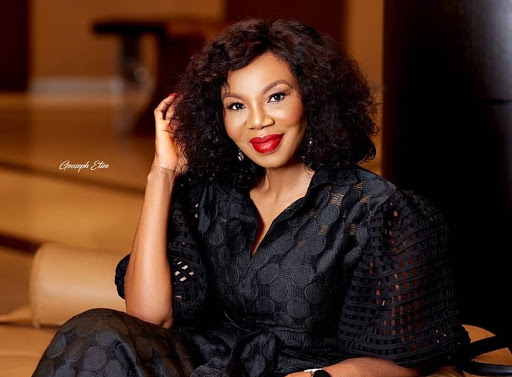
When did you first notice that your mental health was an issue and what kind of experiences and symptoms were you having?
I was about 52 years old when I first realised I was always feeling out of sorts and suffering terrible mood swings. I would cry for no reason and feel persistently sad, and I didn’t understand why. I also suffered from chronic insomnia, which aggravated my anxiety, and I felt an all-encompassing sense of despair that I couldn’t shake off. I began to withdraw from social activities to preserve what was left of my self-esteem; it was my way of avoiding people’s judgment. Self-isolation is very common for people with mental health illnesses. This withdrawal wasn’t just a preference for solitude but a desperate need to protect myself from further emotional distress.
Up until the pandemic, mental health illnesses weren’t openly talked about in Nigeria. What did you do when you realised your mental well-being was deteriorating? Did you have anyone to openly confide in back then?
Mental health wasn’t a topic of discussion at that time, and I really didn’t know what I was going through. I just tried to deal with it on my own, thinking it was something I could just push through. Fortunately, I had my family, and that was all I needed to get well. We all tried to figure it out together, especially when we didn’t have a proper diagnosis of what was wrong. It was a challenging time.
The COVID-19 pandemic put a lot of pressure on everyone’s mental health because of the sudden disruption of the normal! People were isolated from friends and families, and loneliness set in. It induced anxiety and fear and triggered panic attacks and depression. People just didn’t know how to cope with what had become everyone’s current reality. I received a lot of messages from families and individuals asking for help. Luckily, unlike during my own episodes with depression, I knew many therapists and quickly referred them to psychiatrists and therapists for evaluation and care.
Mental illness has always been a thing; it has always existed, though we don’t have statistics to support the exact figure. In Nigeria, mental health discussions are often shrouded in stigma. This avoidance of mental health conversations was deeply rooted in cultural beliefs and the fear of being ostracised.
Thankfully, I didn’t relapse during COVID. My experience became my superpower. I knew exactly how not to succumb to any negative thoughts. I practiced mindfulness and took my self-care routine more seriously. I lived in the moment without overthinking or overanalyzing how things would pan out.
At your lowest, how did you feel? What did you do? And how did you get the help you needed?
My lowest points were marked by a deep sense of helplessness and despair. I felt completely numb and disconnected from everything around me. It was like living in a fog where nothing seemed real or meaningful. It felt like being trapped in a dark room with no way out. However, these experiences forced me to confront my innermost fears and insecurities. What I went through helped me unpack my thoughts and emotions to get clarity.
I sought help and leaned on the support of my loved ones. It was a challenging process—finding the right therapist and opening up about my struggles—but it was worth it. Therapy, along with medication provided by a therapist, helped me start to regain control over my life.
I had many low moments trying to figure things out and wondering “why me,” but when you begin to reflect on everything, you understand that this was also a process of refinement, purification, and healing from too many carry-over baggages.
How do you feel now, and what are the intentional steps you take so you don’t find yourself back where you had mental health illness?
I am phenomenal; I am fantastic and blessed. I changed my lifestyle, and I have learned to live intentionally, to recognise triggers, and to take proactive steps when I notice them. I make lessdemands of myself and stay away from negative energy. Self-care isn’t just a buzzword for me; it’s a necessity. I take my self-care, which includes fitness, meditation, healthy nutrition, more outdoor activities, and walking with God, very seriously. I am gentle and kind to myself and my mind.
First and foremost, it’s very important for us to stop being unnecessarily anxious about things that may or may not happen in our lifetime. It is important to know that we are human and fallible. We fall, we get up, we fail, and we try again till we succeed. We should address our fears before they become a mountain waiting to crush us.
A lot of people never want to admit or speak about their mental health struggles because there is a stigma associated with mental health. What is your advice to anyone who is too embarrassed to speak about their mental health?
My advice to anyone who feels embarrassed to speak about their mental health, is to understand that acknowledging your struggles is a sign of strength, not weakness. Mental health issues are real and can affect anyone, regardless of gender. Speaking up is the first step towards healing and can make a significant difference in your life. It’s important to remember that you’re not alone—many people are going through similar experiences. Reach out to someone you trust, whether it’s a friend, family member, or professional. Breaking the silence is crucial, and seeking help is a courageous act that can lead to recovery and a better quality of life.
If I focused more on the stigma, I would not have displayed such full disclosure of my mental health struggles in my book “Dust to Dew.” Of course, the stigma will continue to be a thing, but getting help is more important. I find that the stigma is based on ignorance and the wrong narrative about mental illness, and with more people speaking up and sharing their stories of overcoming, more awareness will be created.

